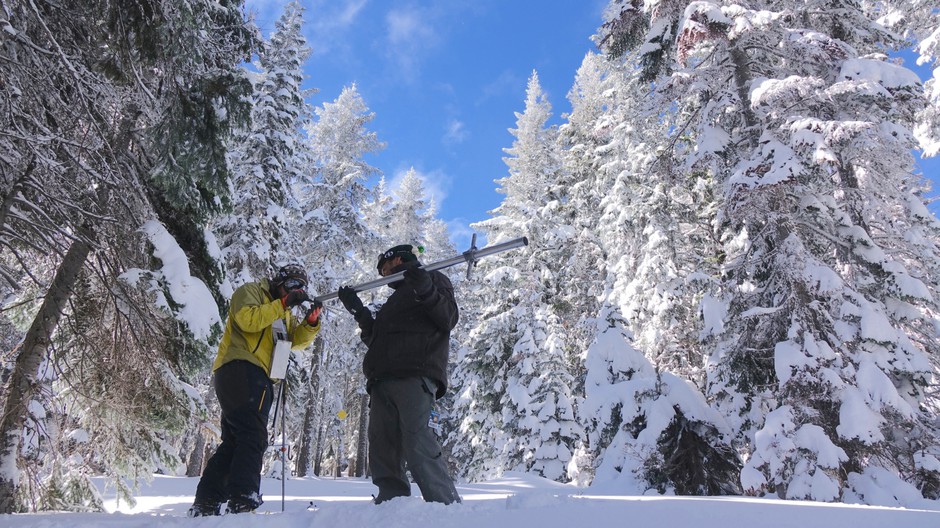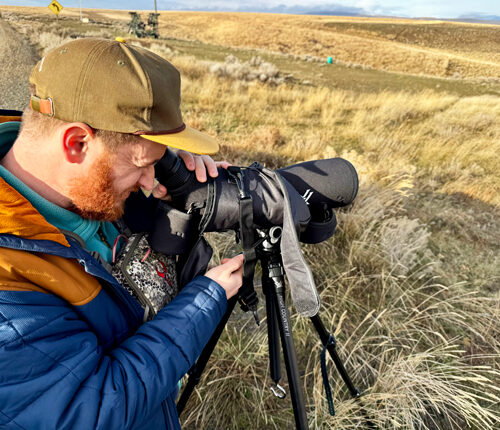
Want Proof Climate Change Is Here? Look At Oregon In 2018, Report Says
Read On
Climate change is playing out in significant ways in Oregon, with evidence in the form of more severe wildfires, lower summer stream flows and diminishing winter snowpacks, according to the state’s fourth annual climate assessment report.
The report, issued Thursday by the Oregon Climate Change Research Institute, made it clear that climate change is no longer something to discuss as part of the Northwest’s future. It’s happening now — and will get more severe.
“Simply put, the state’s biggest fire years occur when summers are usually warm and dry,” said Philip Mote, an author of the report and the former director of the Oregon Climate Change Research Institute. “Since warm and dry summers are occurring more frequently, we can expect the fire danger to increase as well.”
The annual report is the fourth issued by the institute, which is part of Oregon State University. The report held up 2018 as strong evidence Oregon is experiencing more severe impacts from climate change, which is occurring because of heat-trapping gasses that enter the atmosphere when fossil fuels are burned.
Last August, Portland and Oregon’s Willamette Valley experienced some of the worst air quality on the planet because of smoke from wildfires. Oregon ranchers experienced economic losses because water flows were so low and the summer was so hot and dry. Drier-than-normal conditions led to emergency drought declarations in 11 Oregon counties.
“Climate change touches all corners of Oregon but our frontline communities are most vulnerable,” the report states. “These include the economically disadvantaged and those who depend on natural resources for their livelihood: rural residents including Native Americans.”
Researchers found that the entire Pacific Northwest had warmed about 2 degrees Fahrenheit since 1900. By the end of this century, Oregon is projected to warm by between 4 and 9 degrees.
Temperatures are expected to spike more often. Except in the mountains and the coast, Oregon will see an increase of 30 days with temperatures above 86 degrees. That will be especially hard for farm workers and outdoor laborers as well as urban, economically disadvantaged communities, the report’s authors wrote.
Rising average temperatures aren’t affecting the amount of annual precipitation that falls on Oregon. But they are changing how and when it falls: more winter rain, less snow and less rainfall in the summer. The consequences are less mountain snowpack to melt into streams during the summer. Drier landscapes during those summer months. And more extreme winter rain events, which can make slopes less stable, landslides more frequent, and the risk greater that such slides will force the closure of roads and railroad tracks.
The report found a benefit for some in Oregon: farmers and home gardeners are seeing longer growing seasons — and could lengthen in the Willamette Valley by as much as two months.
“Water availability may still be a concern for some crops, and weeds thrive with higher carbon dioxide levels,” said Mote, vice provost and dean of OSU’s graduate school. “But spring is definitely beginning earlier and fall is lasting longer.”
Copyright 2018 Oregon Public Broadcasting
Related Stories:

Canadian leaders hope trade negotiations won’t derail Columbia River Treaty
A view of the Columbia River in British Columbia. The Columbia River Treaty is on “pause” while the Trump administration considers its policy options. However, recent comments by President Donald

Searching for sage grouse: Looking for a chicken-sized needle in south-central WA
Seth Hulett, Audubon Washington’s senior program manager of the Columbia Plateau, searches through his spotting scope for sage grouse. (Credit: Courtney Flatt / NWPB) Listen (Runtime 4:12) Read In south-central

Dozens in Yakima rally to support science for national protest
Around 50 people gathered for Yakima’s Stand Up for Science rally on Friday. People around the country attended science protests at the same time. (Credit: Courtney Flatt / NWPB) Listen















